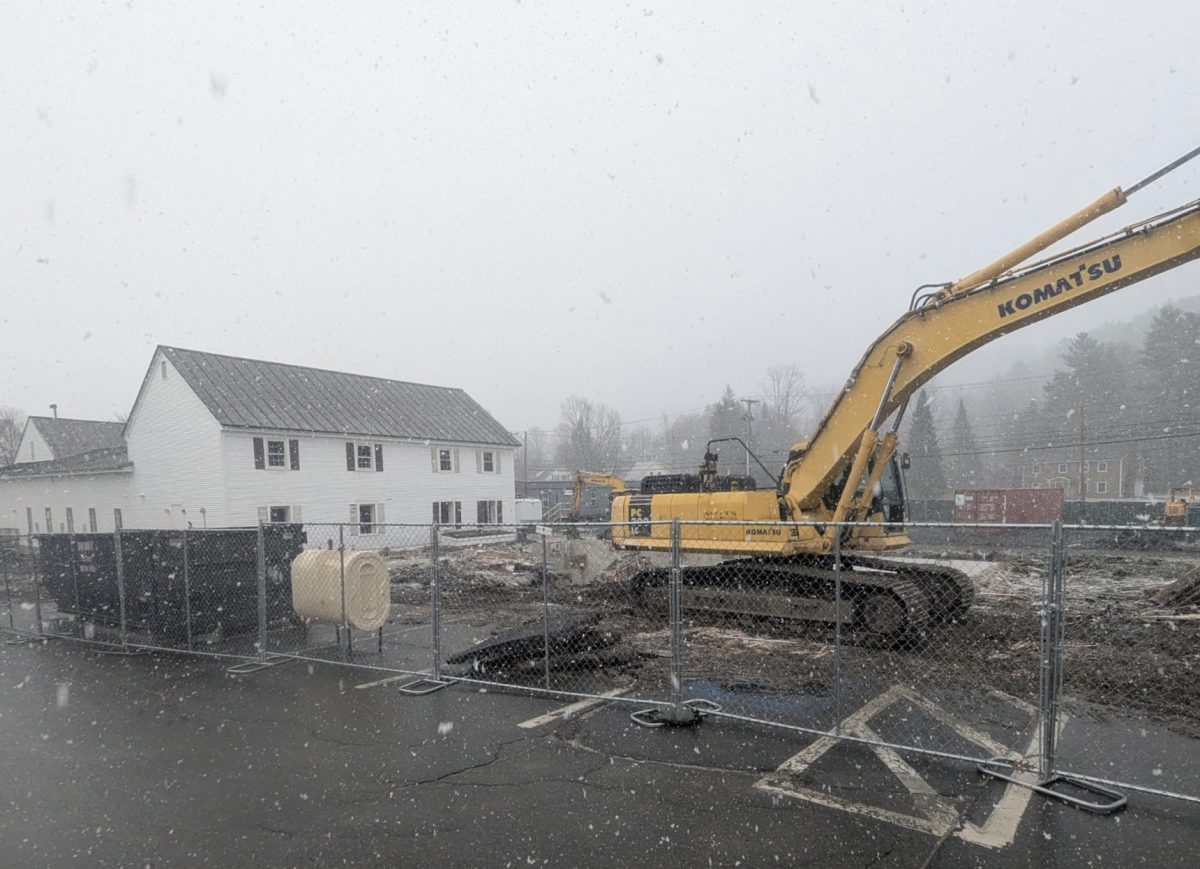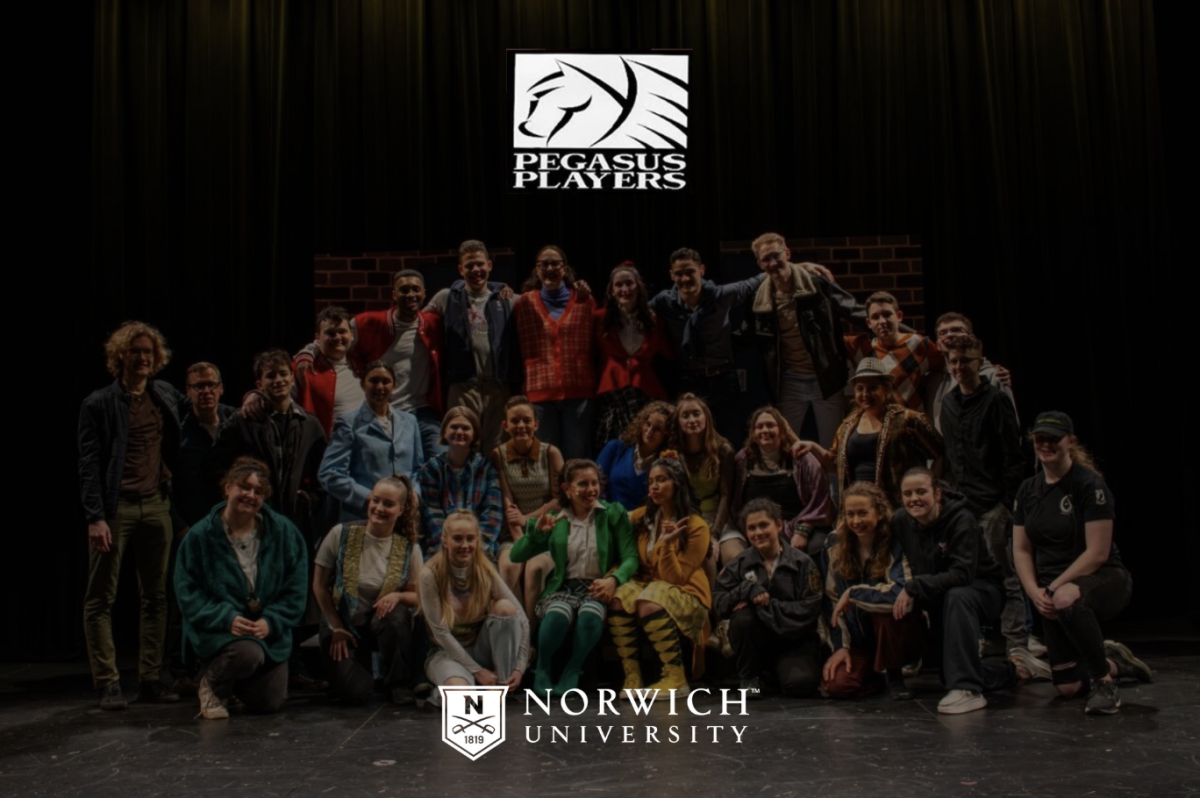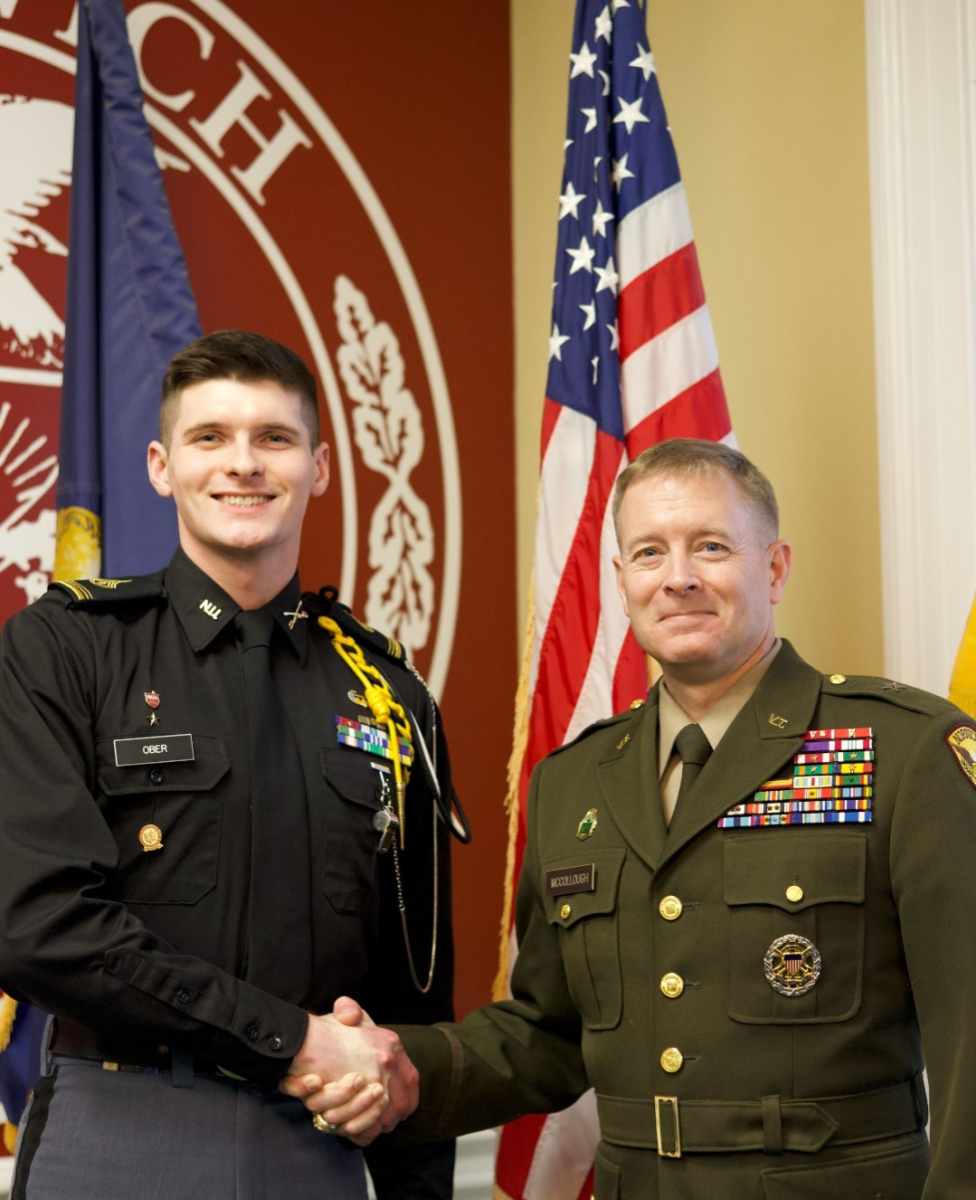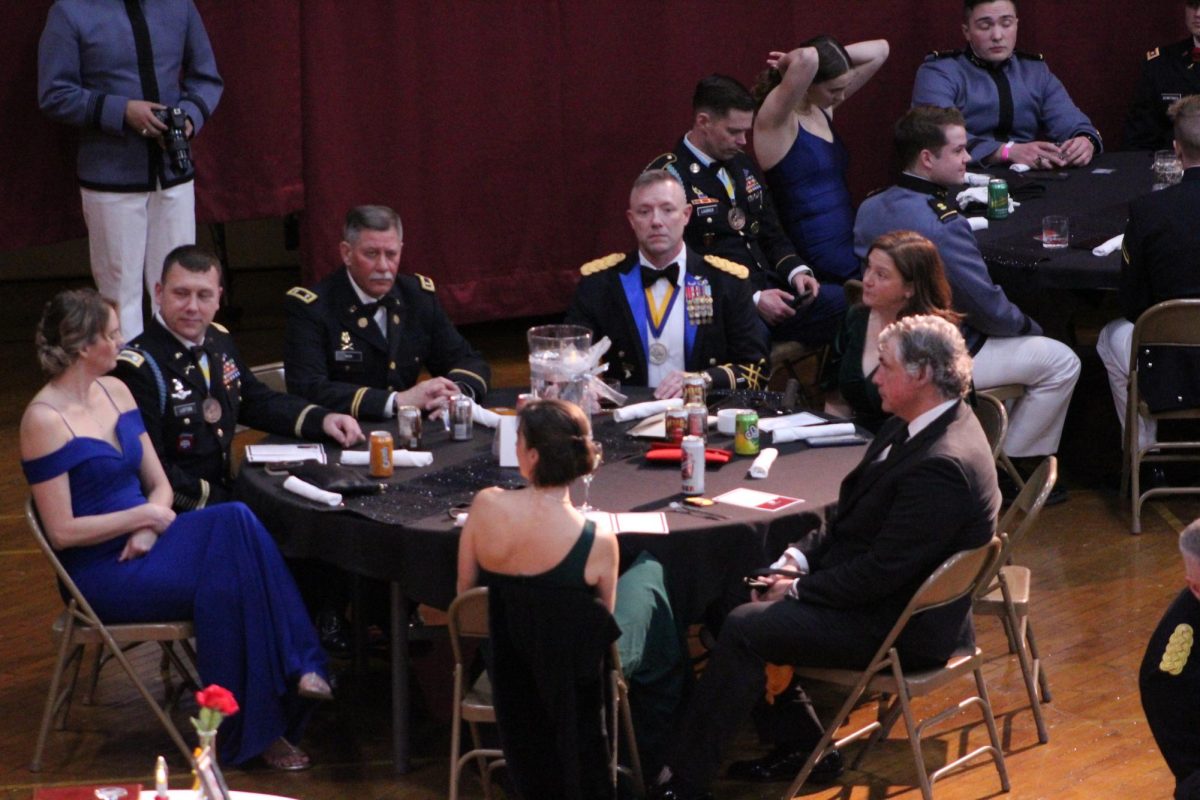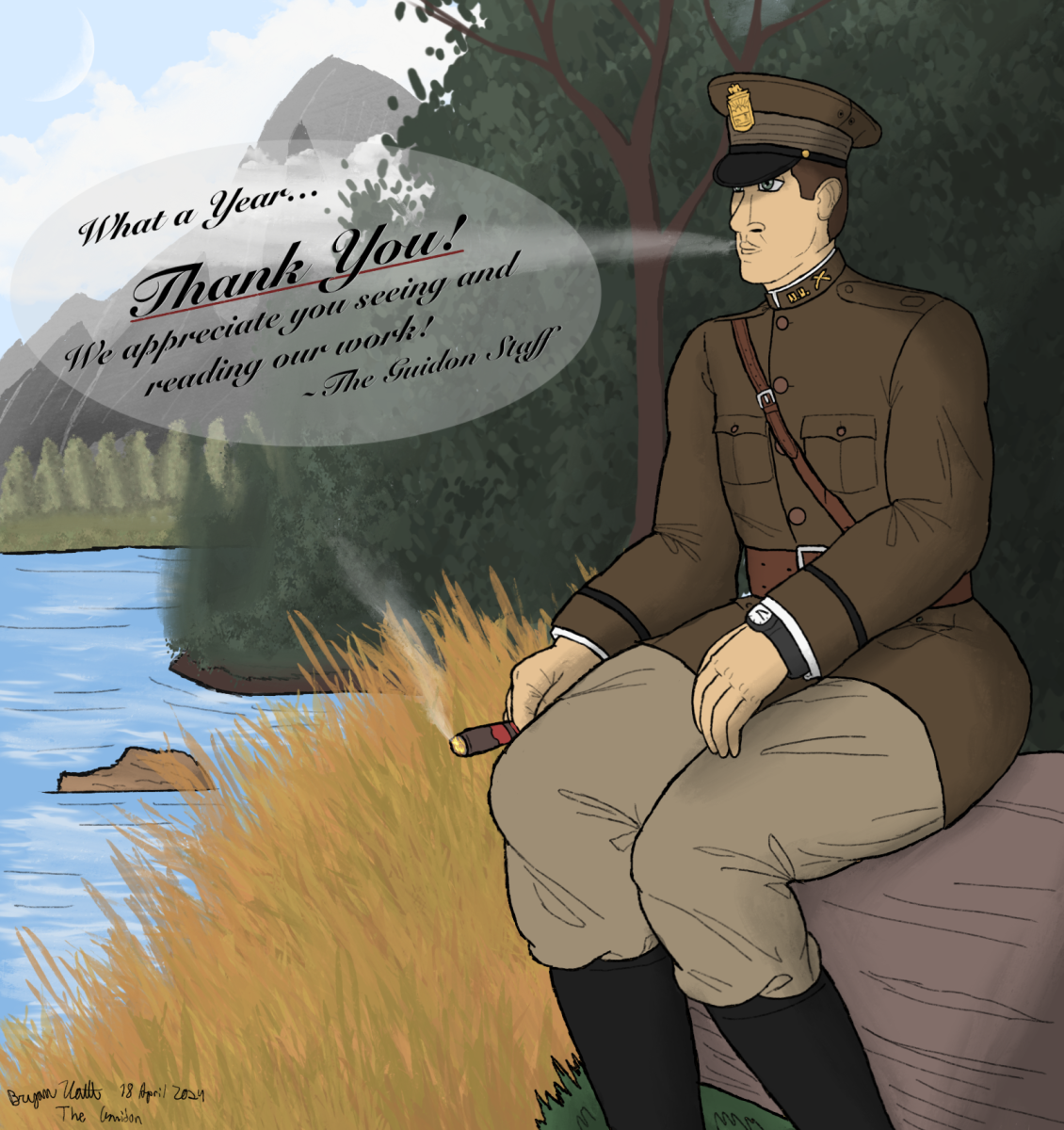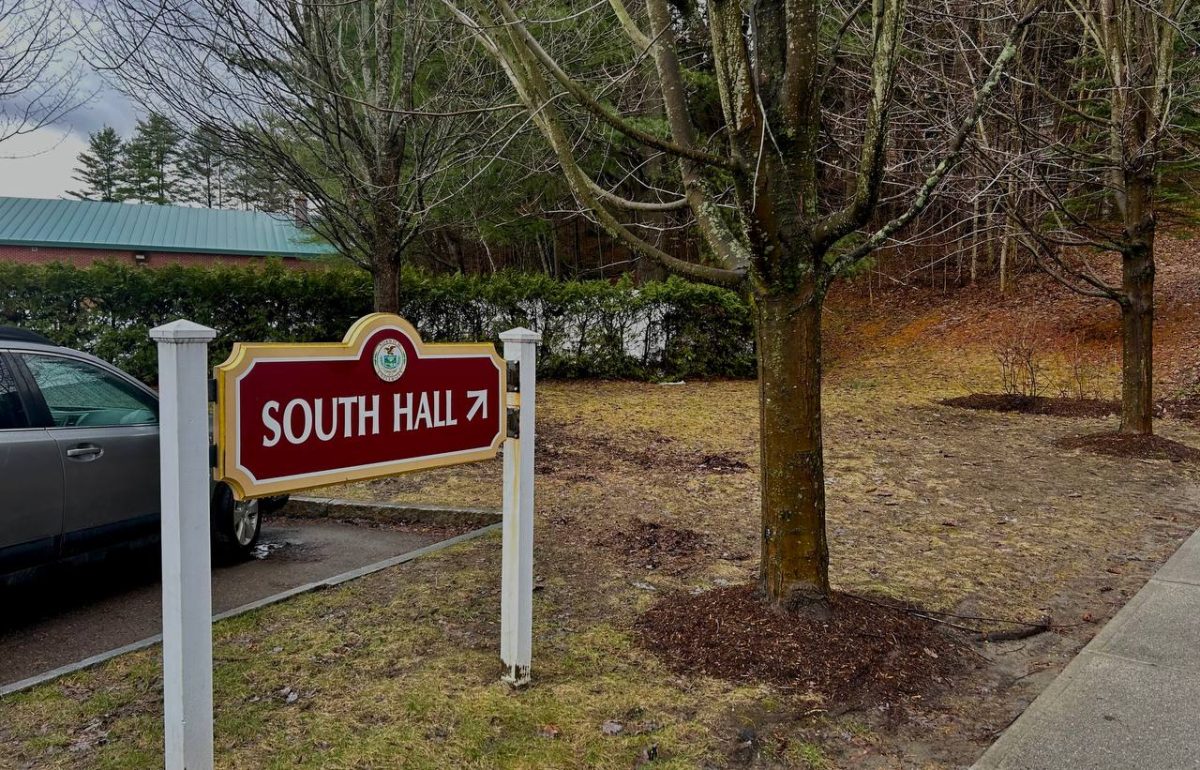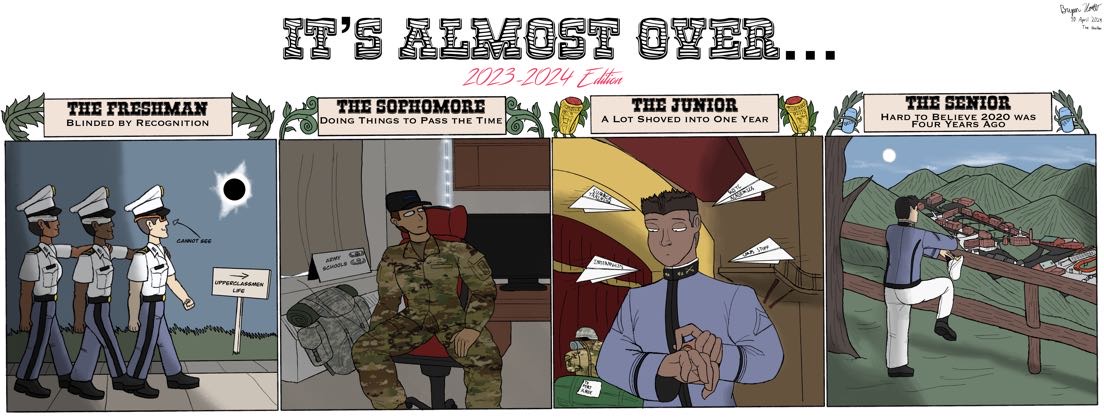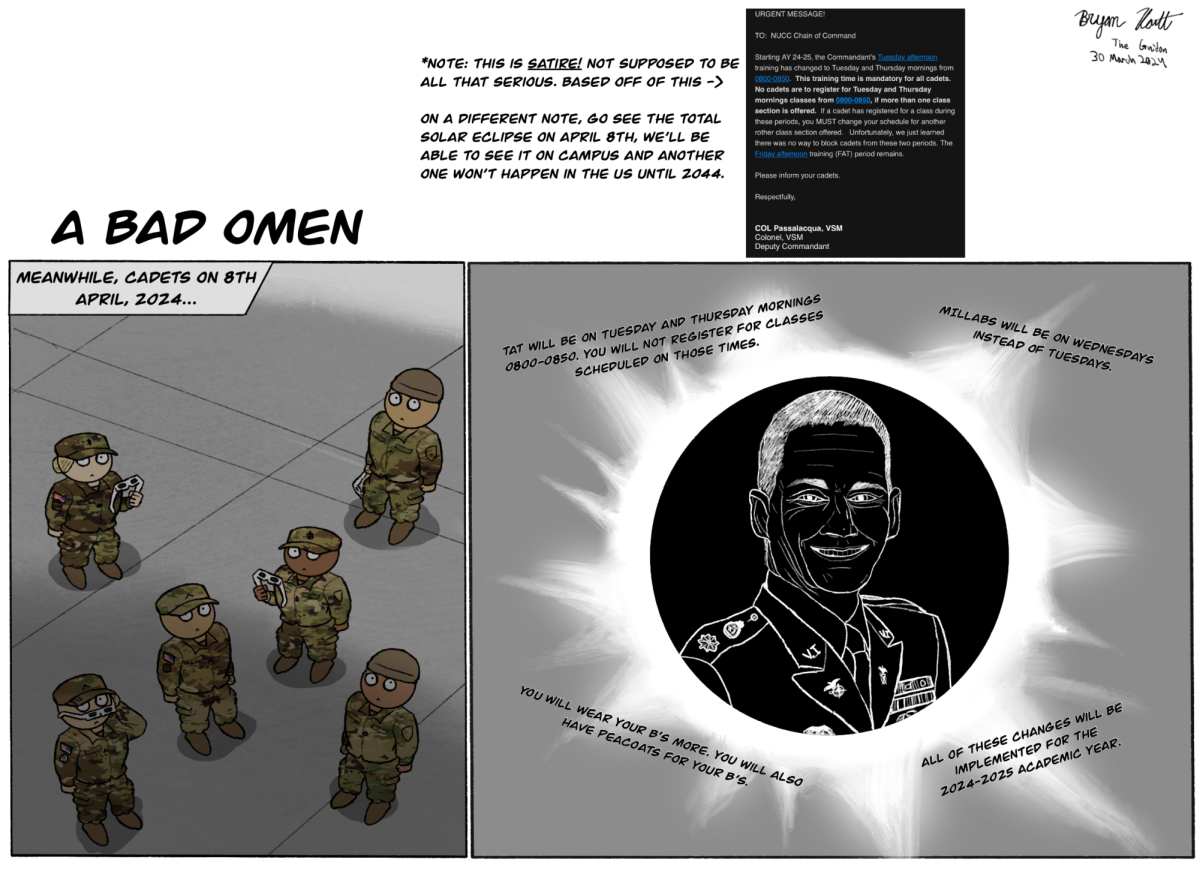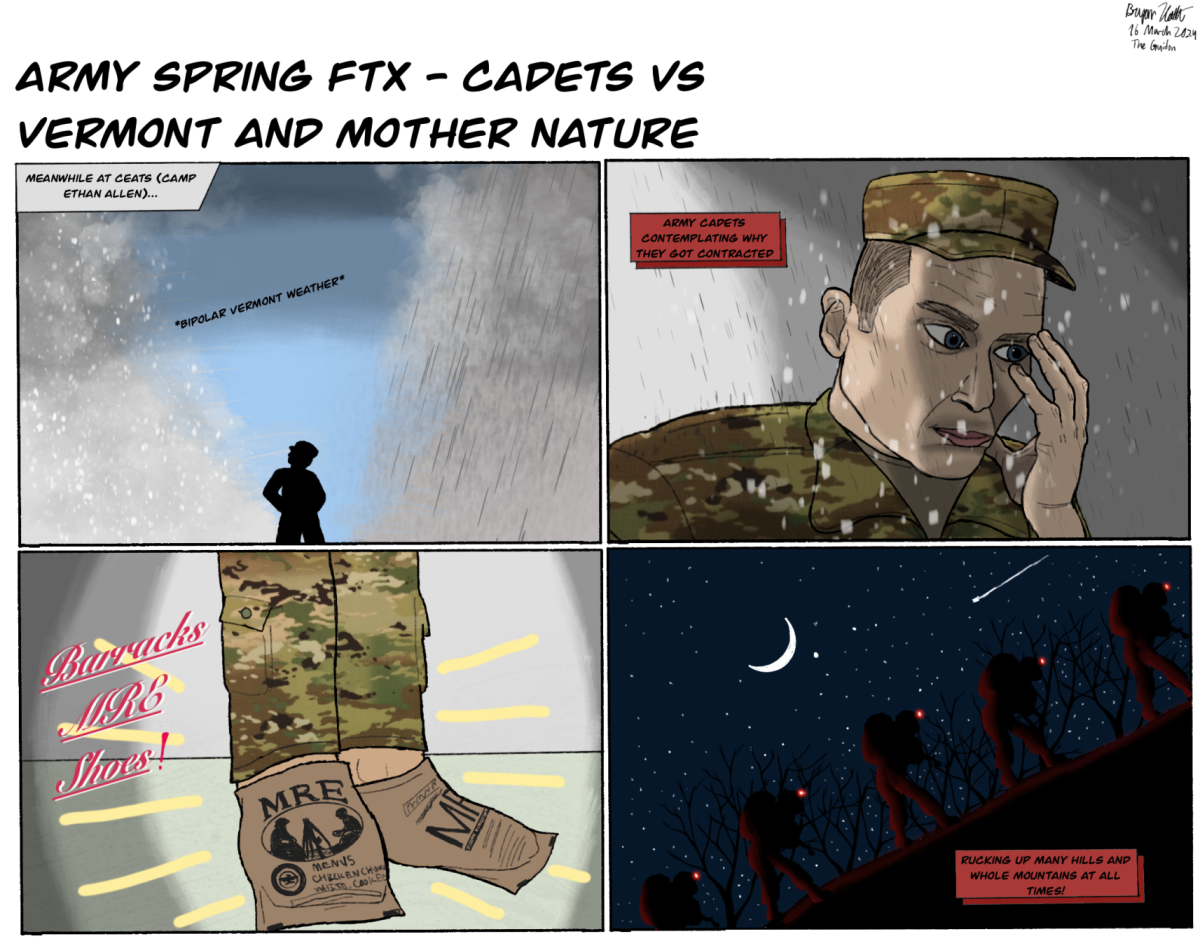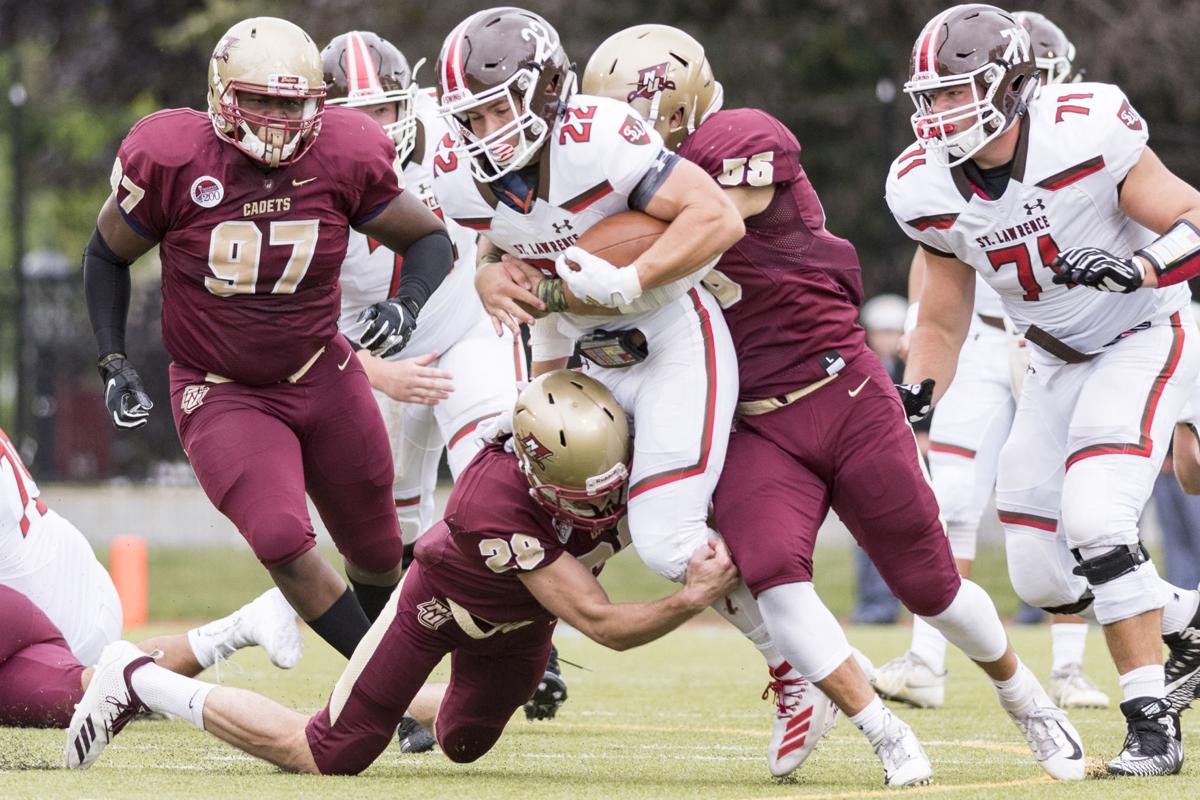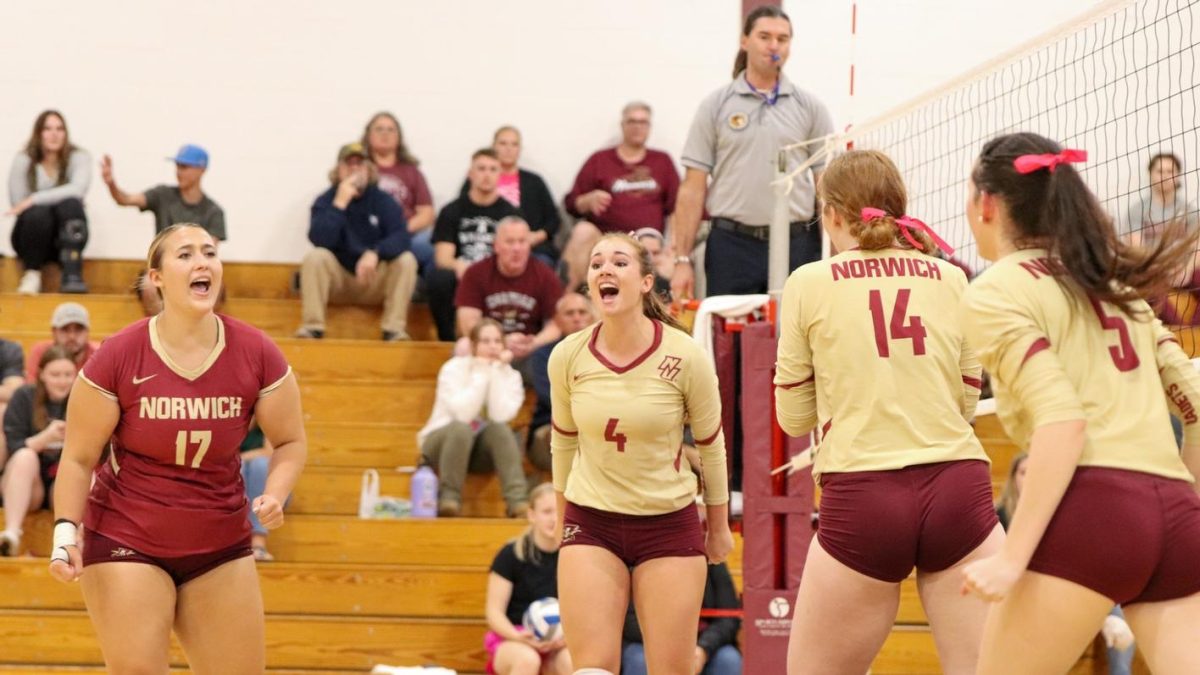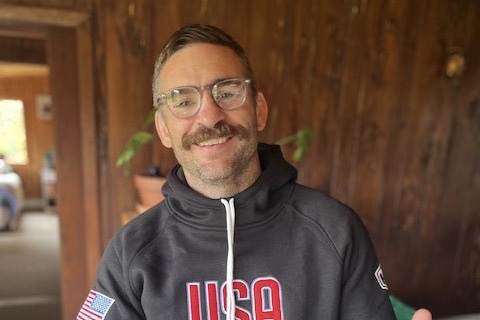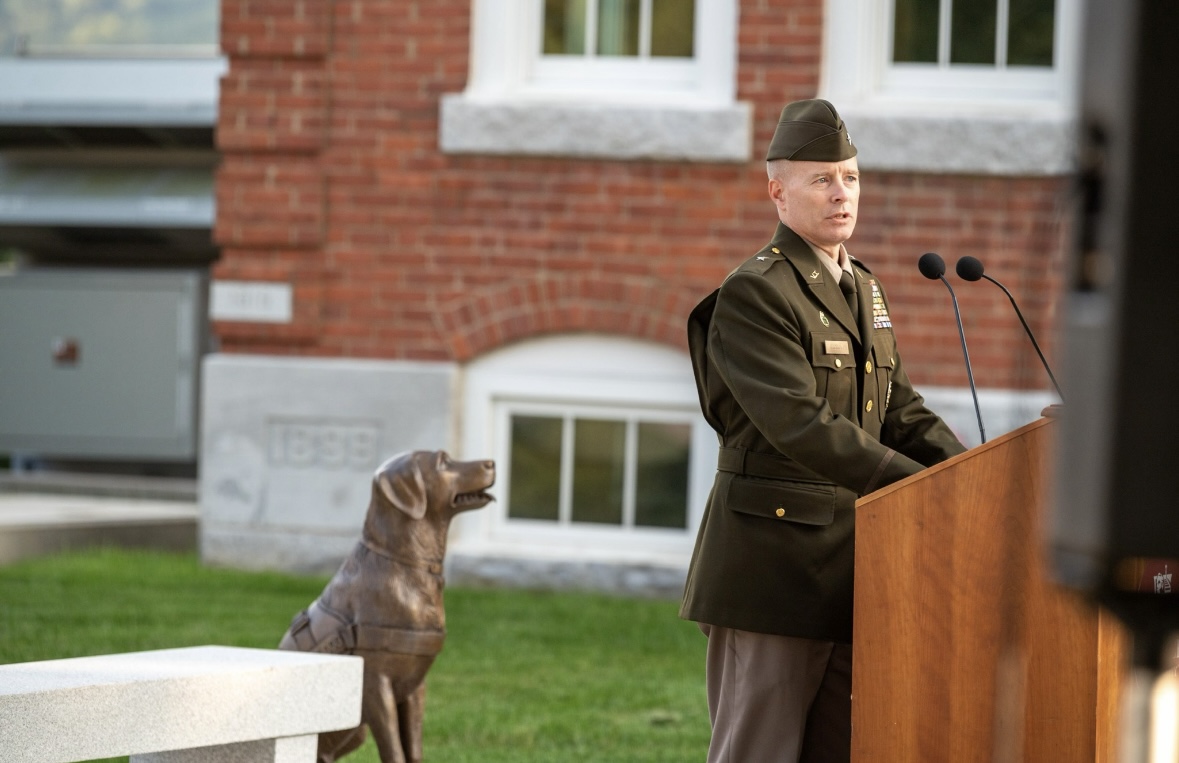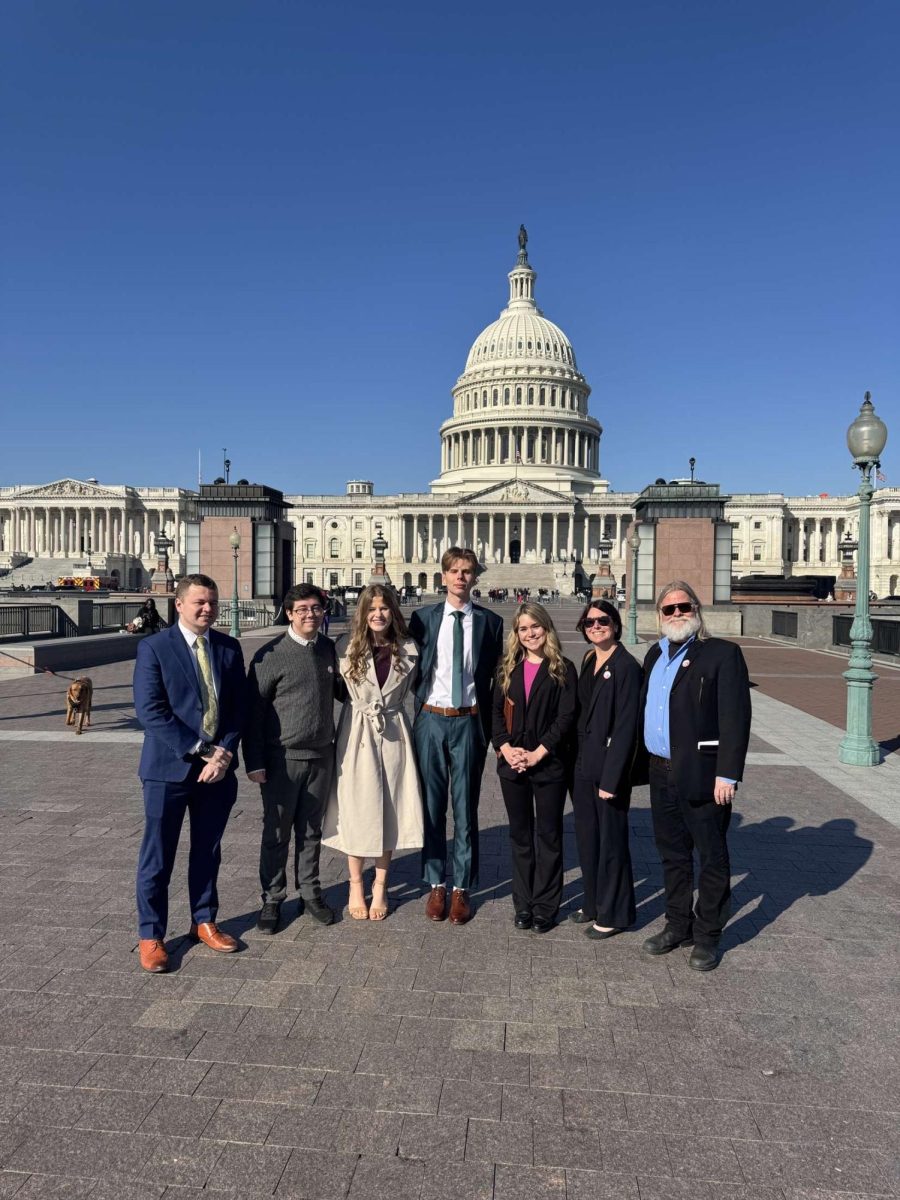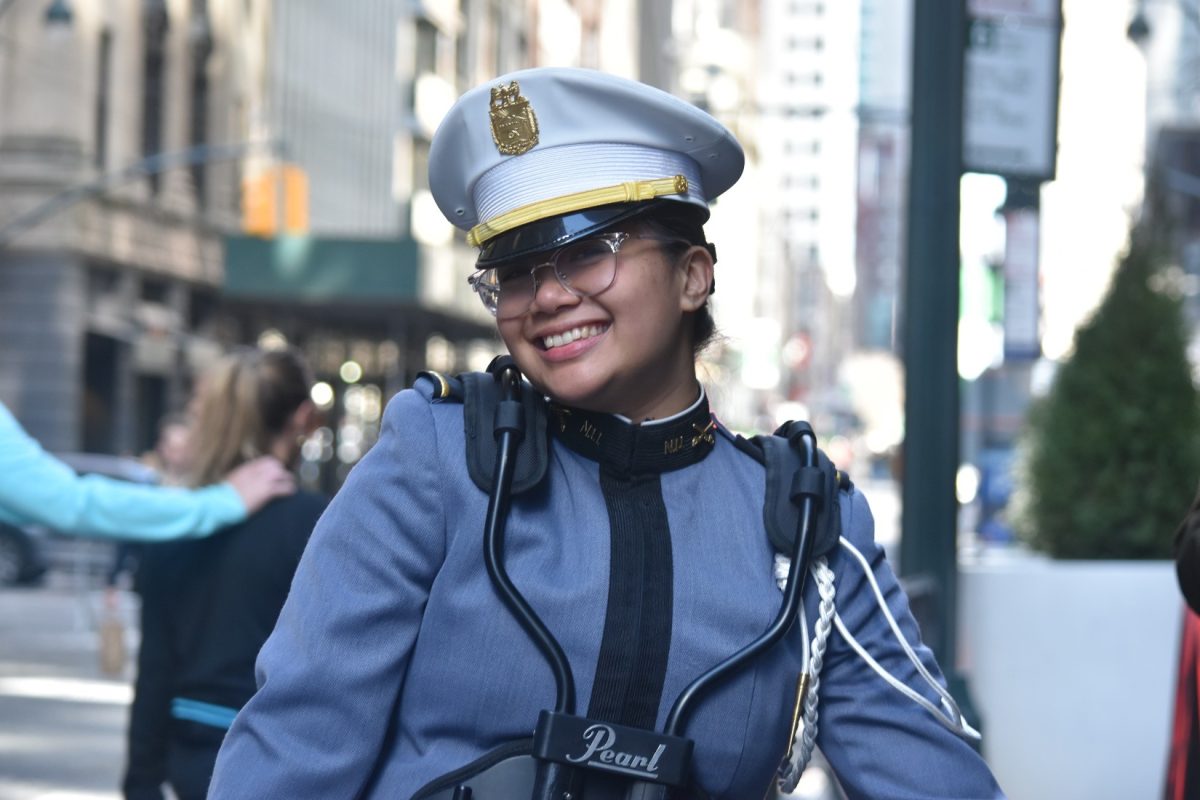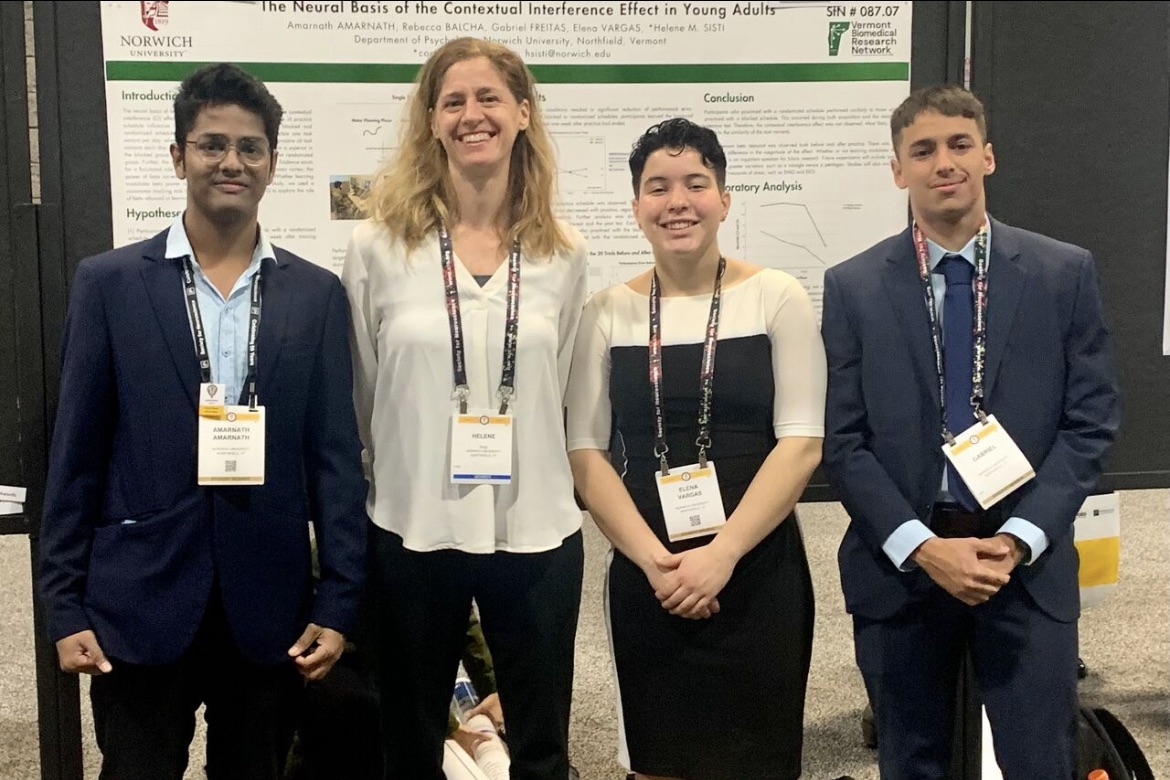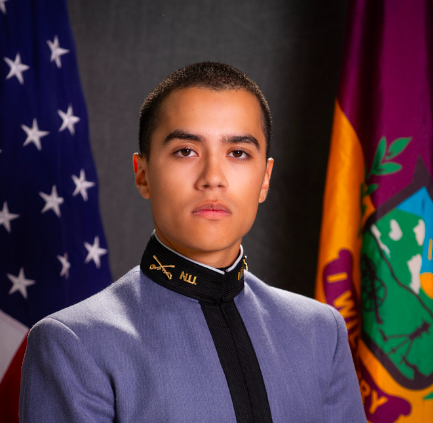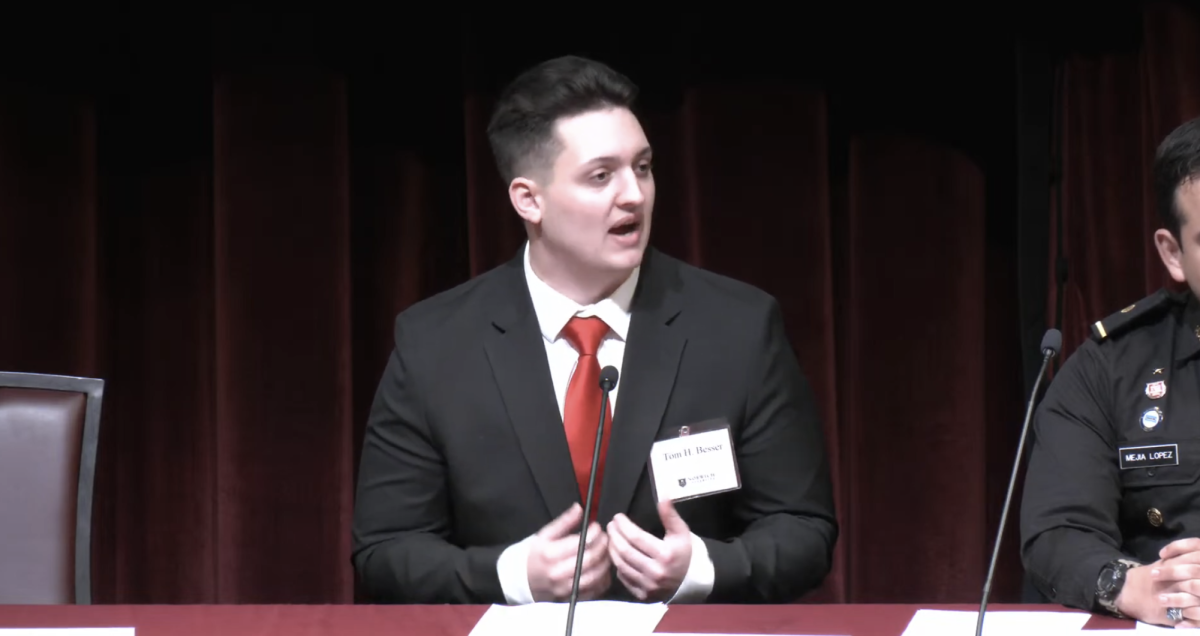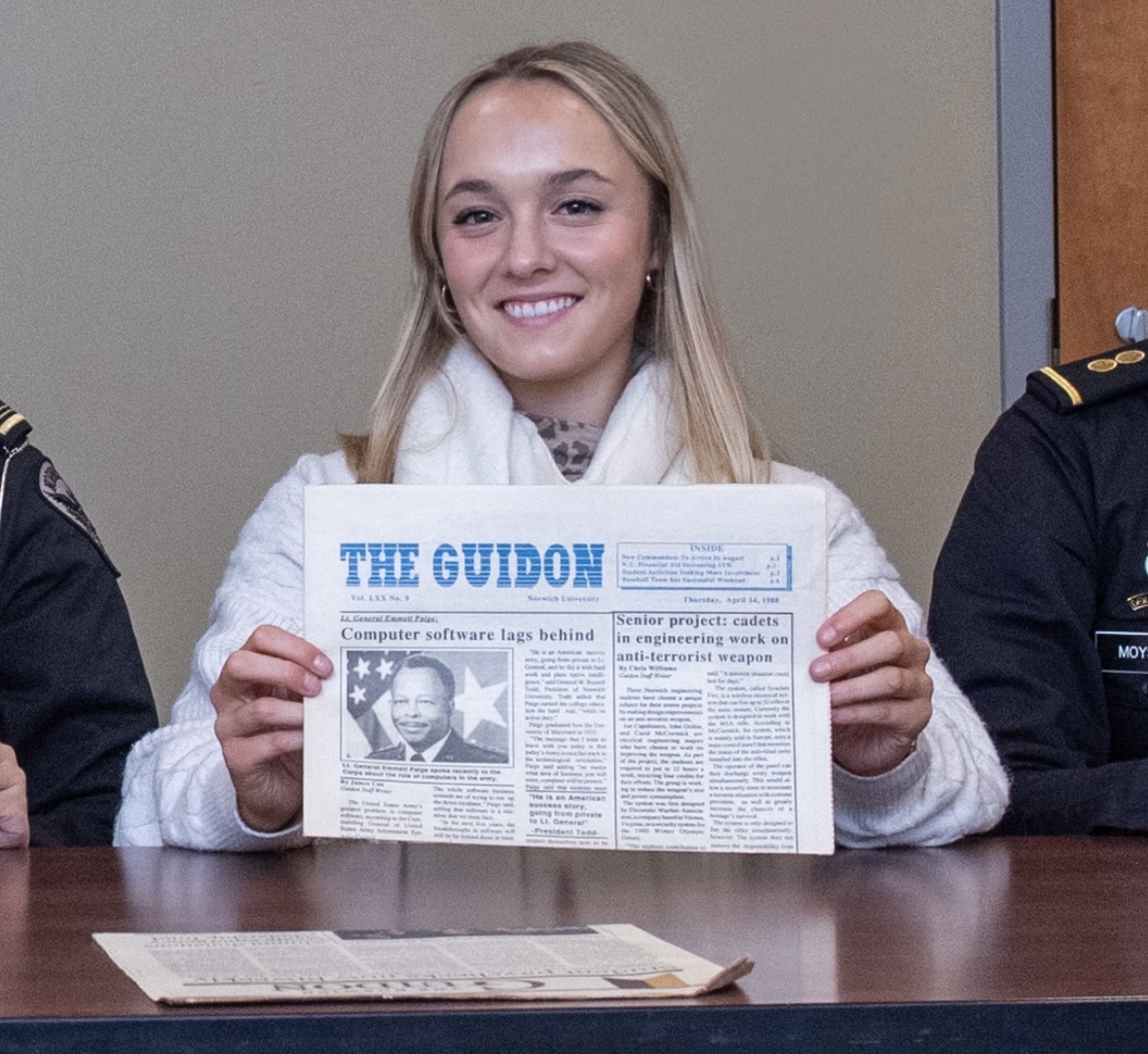Norwich Students recently attended the Society for Neuroscience 2023 conference to present their research among graduate students, which is roughly 30,000 individuals.
The Society for Neuroscience is a week-long conference where neuro experts and (post) graduate students present their research. It is also an event for neuro-related companies to advertise their products and promote their sales.
Norwich undergraduate students took this opportunity to present their research on The Neural Basis of the Contextual Interference Effect in Young Adults.
This study examined how “…the difference in practice schedules can affect the subject’s retention rate and if successful, could be used in cases such as therapy to those suffering from brain injury affecting motor ability,” said Elena Vargas, age 19, Sophomore in the Corps’26, double majoring in biology and chemistry from Massachusetts.
Being some of the few attending undergraduate students among neuro-experienced Post-Graduate, Doctorate-pursing experts, and Scientists who are also presenting their research led to a fruitful trip.
“We had a factor that was not significant enough to see a change in our research to be conclusive,” said Ash Amarnath, age 20, Junior Civilian’24, majoring in Computer Science from India.
“Having experts examine our cases and offer alternate methods gives room for growth.”
Sadly, despite the week-long conference, the itinerary was compacted into two days: travel and presentation days.
“There were experts who wanted to offer more insights on our research at a later date, but with how compact our day schedule was, we didn’t have enough time,” said Gabriel Freitas, age 19, Sophomore in the Corps’26, majoring in Biochemistry from Massachusetts.
The original schedule had conflicted with the Marine Corps Ball, and with a delayed flight, the sightseeing and conference exploration opportunity on day one was canceled.
“Being involved in a research project, it is better to have in-person conversations instead of emails and phone calls. It is simply more efficient to convey the passion for the research and graduate studies,” said Amarnath.
However, “…there was no need to spend an entire week in D.C. [as] the purpose of the trip was to conduct a pitch proposal and to see what else we can do to improve our research,” said Vargas.
Despite the abrupt changes, “…it was memorable, being there among those of greater experience. It was a mind-opening time,” said Freitas, who shares this as his first undergraduate research opportunity.
All of the experiences gained were made possible by the Vermont Biomedical Research Network (VBRN), which funds the research led by Professor Helene Sisti, Assistant Professor of Psychology and Education.
Note: The Neural Basis of the Contextual Interference Effect in Young Adults is a research project undergoing publication. Therefore, the details of the study cannot be discussed before the publication of this article.
For questions specific to the research, reach out to Prof. Helene Sisti, [email protected]
